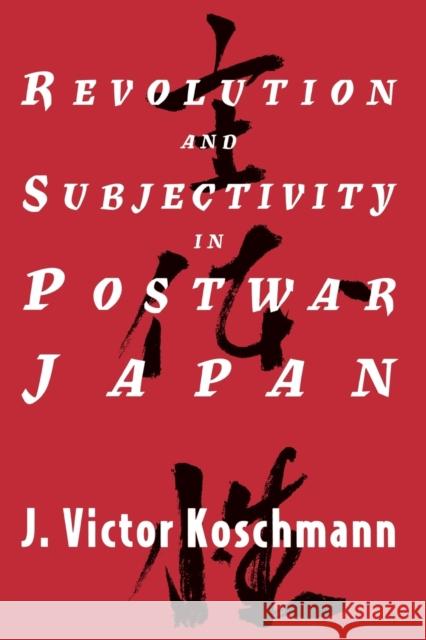Revolution and Subjectivity in Postwar Japan » książka
Revolution and Subjectivity in Postwar Japan
ISBN-13: 9780226451220 / Angielski / Miękka / 1996 / 306 str.
After World War II, Japanese intellectuals believed that world history
was moving inexorably toward bourgeois democracy and then socialism. But
who would be the agents-the active "subjects"-of that revolution in
Japan? Intensely debated at the time, this question of active
subjectivity influenced popular ideas about nationalism and social
change that still affect Japanese political culture today.
In a major contribution to modern Japanese intellectual history, J.
Victor Koschmann analyzes the debate over subjectivity. He traces the
arguments of intellectuals from various disciplines and political
viewpoints, and finds that despite their stress on individual autonomy,
they all came to define subjectivity in terms of deterministic
historical structures, thus ultimately deferring the possibility of
radical change in Japan.
Establishing a basis for historical dialogue about democratic
revolution, this book will interest anyone concerned with issues of
nationalism, postcolonialism, and the formation of identities.











